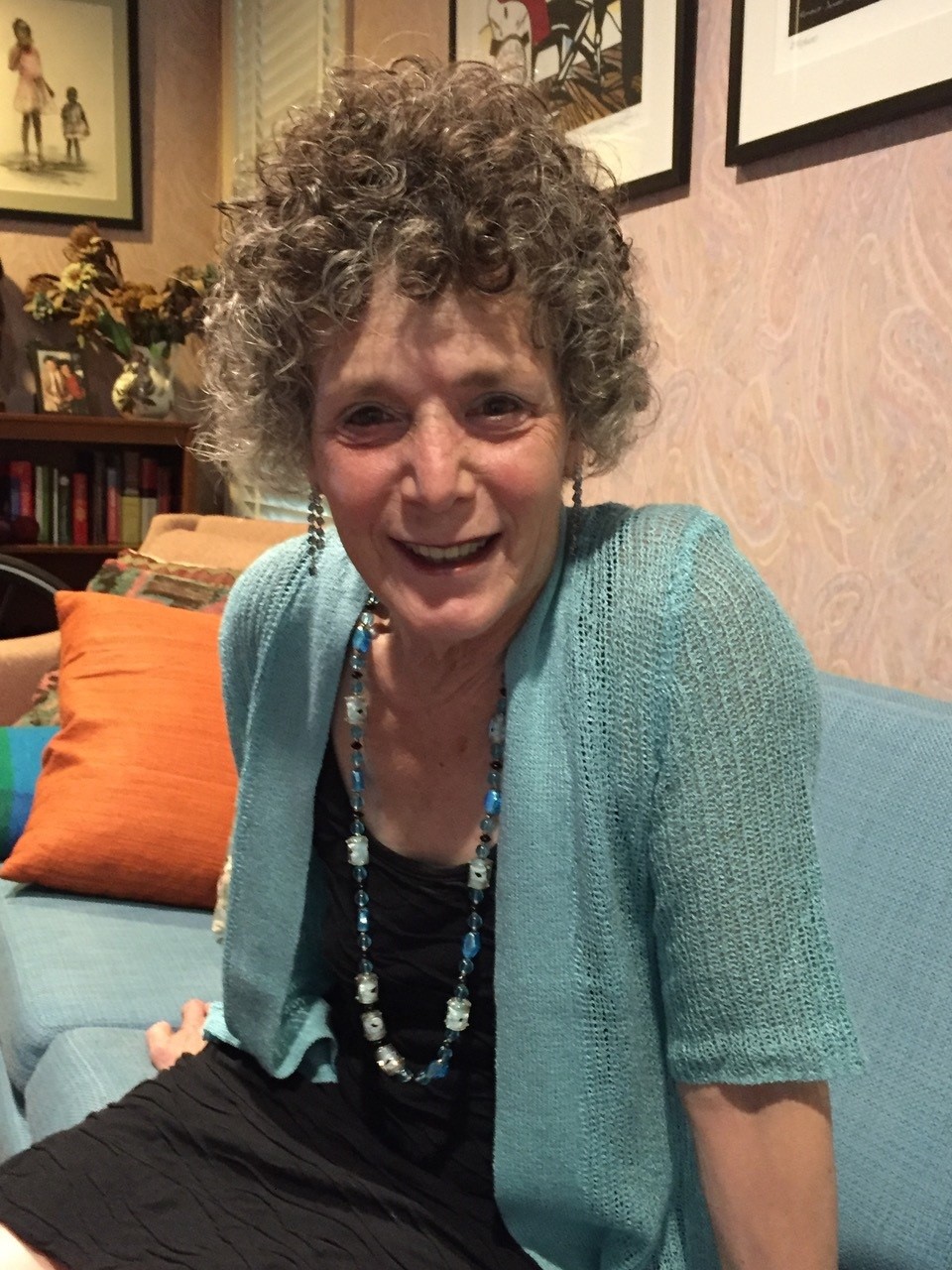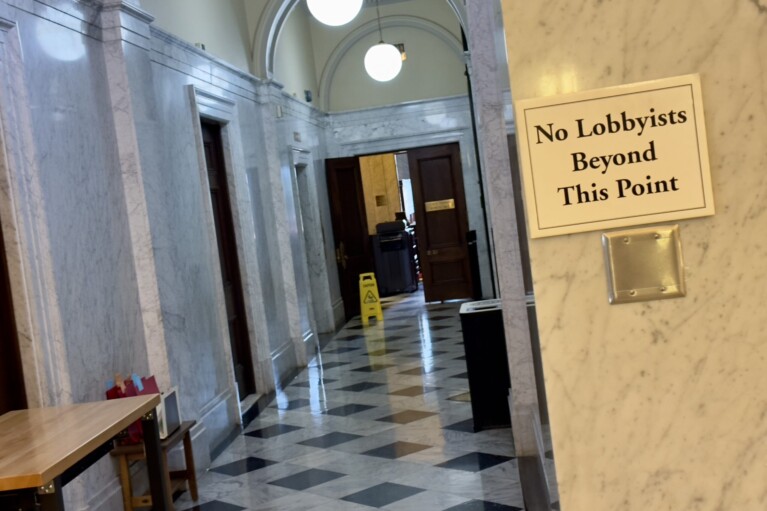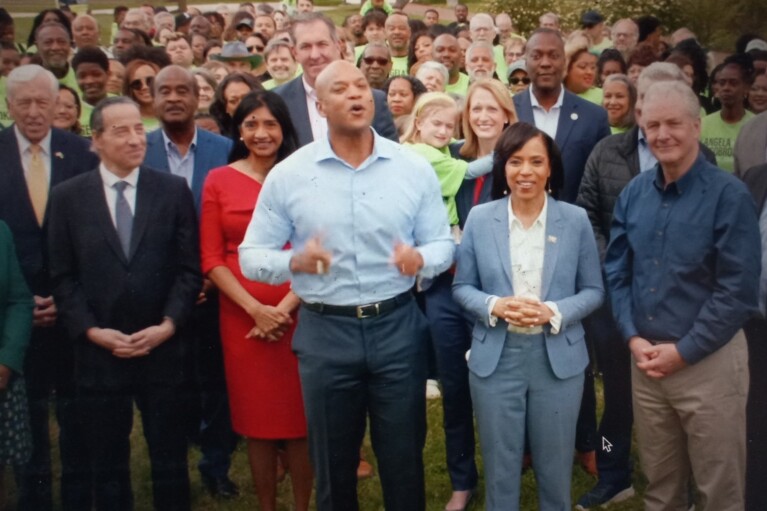These Maryland Latinas are empowering others to follow their lead

As the Latino community grows in Maryland, women leaders from the community are rising to positions of power, organizing change and making a path for the next generation of leaders.
The Latino population in Maryland grew from 8% to 12% in a decade, or to some 744,000 in the 2020 Census, with the largest communities in Montgomery and Prince George’s counties.
During Hispanic Heritage Month — which runs from mid-September to mid-October and celebrates the historic Independence of the Spanish republics of the Americas and the contributions of Hispanics in the United States — Maryland Matters is profiling three Latina leaders in the state.
Del. Joseline Peña-Melnyk: Working to make the invisible, visible
“It’s tough to be what you can’t see,” said Dominican-born Joseline Peña-Melnyk (D-Prince George’s), reflecting on her journey from immigrant to a committee chair in the Maryland House of Delegates, where she has served since 2007.
By 2014 she co-founded the Maryland Legislative Latino Caucus and is the vice-chair. It has now grown to 83 members, including 7 Latino lawmakers and 76 non-Latino associate members.
Peña-Melnyk’s tenure in the General Assembly is marked by numerous bills and legislative firsts, so many that she says it is hard to count them.
Raised by a single mother in New York’s Washington Heights neighborhood, she and her sister grew up quickly, with Peña-Melnyk, at eight, learning to navigate the local welfare office to secure benefits for the family, and to help Latinas waiting for caseworkers. “My mom would volunteer me to translate. I knew I had no business knowing people’s very private [information] like where’s the father of your child, and how to find him,” she said.
But she discovered her voice had power. “I remember thinking, I want to be a lawyer, and my mother would call me abogadita, or little lawyer.” Her mother worked tirelessly in the garment industry, a work ethic Peña-Melnyk said she inherited. As a child Peña-Melnyk and her sister returned to the Dominican Republic, living there for two years in a tiny wood house with their large extended family, all dependent on money sent from America.
Her mother, who left school in the third grade, wanted a better life for her daughters. Peña-Melnyk fulfilled those dreams. She graduated college, became a lawyer, a public defender and prosecutor and by 2003 entered electoral politics, winning a seat on the College Park City Council.
“We went through a lot, and that really shaped who I am today. I can speak from having been hungry, having no transportation, and coming to this country and seeing my mom struggle,” she said. I legislate from lived experience. I work hard to improve the life of all Marylanders.”
Peña-Melnyk chairs the House Health and Government Operations Committee, the highest position for an Afro-Latina in the Maryland General Assembly. And, it’s from this platform that she’s worked to make health care a priority. “We created the Maryland Health Benefit Exchange in 2011, adapting Obamacare and expanding Medicaid to reduce the uninsured from 14% to 6%,” she said.
Among the remaining 350,000 uninsured, 275,000 are undocumented residents.
Peña-Melnyk said she hopes to tackle that issue, supporting re-introduction of the Access to Care Bill, which would allow undocumented immigrants to purchase health insurance on the public exchange. She said the state is currently paying millions in uncompensated hospital costs. “We’re very committed to finding solutions, and you can bet that I’m going to do my absolute best,” she said.
In 2022, Peña-Melnyk worked with advocates to win support for the Healthy Babies Equity Act, which extends Medicaid coverage to undocumented pregnant women. Peña-Melnyk said since the law went into effect, 3,800 people have already signed up.
She described her legislative success this way: “I really try to listen, be balanced, respectful and speak from the heart on every policy I look at,” she said. “What I do, how hard I work, make sure I do a good job so that others that have a similar name to mine can be given an opportunity, because there weren’t that many role models for me.”
Gabriela Lemus: A servant leader
Gabriela Lemus believes in the power of one.
“Each of us brings a grain of sand to the beach,” she says, translating a popular Spanish saying that sums her personal vision. That’s at the heart of Maryland Latinos Unidos, a nonprofit formed in 2020 to address issues affecting Maryland’s Latino and immigrant communities with a focus on health care equity, educational access and economic opportunity.
The organization, which Lemus now directs, was formed in 2020, at a time when the Latino population in Maryland was being disproportionately hit by the COVID pandemic.
In response to the disproportionate numbers of sick and dying Latinos, eighty Latino leaders came together from across the state, collaborated and leveraged resources. “That took a lot of creativity and thinking, but it also demonstrated that access is possible when it’s done correctly, and intentionally.”
Maryland is now among the states with the highest Latino vaccination rates.
Lemus calls Latinos Unidos a “Think and Do Tank.” She is obsessive about gathering data that proves her case in her quest to increase Latino representation in Maryland’s 24 counties, in local and state governments and agencies. “That means we need talk to one another, have a plan, put it out there, and [be] prepared with trained leaders in the pipeline. So that when somebody is up for a promotion, the Latino candidate is just as valuable as anybody else,” she said.
Lemus, 60, came to this work with what she calls a privileged backstory. Born in Mexico — her father Mexican, and her mother a first-generation Italian American from Mississippi — she grew up in an extended family that served in the Mexican diplomatic corps, the military and international business. Her uncle was famed Mexican writer Carlos Fuentes. She studied international relations in college and in graduate school, earning a doctoral degree from the University of Miami.
“I’ve had access to everything I needed to be successful,” she said. “It is my responsibility to give back. I see myself as a servant leader.”
Lemus parlayed her academic credentials into teaching and a career of service. She became director of policy and legislation for the League of United Latin American Citizens, led the Labor Council of Latin American Advancement, and was tapped by the Obama administration as senior adviser to Secretary of Labor Hilda Solis and as the agency’s director of the Office of Public Engagement.
She believes Maryland Latinos Unidos offers a template for the nation: “the possibility of building a collective intelligence, that can innovate and make positive change in a positive way that is inclusive, dynamic, and a win-win for everybody.”
“Each with a grain of sand, we can build a beach.”
Jamileth Mendez: A new voice for youth
Over the next year, Jamileth Mendez is getting a crash course in leadership. In August, she joined 54 fellows in the Chesapeake Conservation and Climate Corps. The annual 12-month program administered by the Chesapeake Bay Trust connects youth with watershed communities, and promotes real-life skills in environmental stewardship.
Mendez, 22, a 2023 Trinity Washington University graduate, was matched with Edmonston, a historic Anacostia River port town with a strong environmental ethic. In college she co-founded the Sustainability Initiatives Club, and in her coursework, poster sessions and on panels, spoke out about problems in Chesapeake Bay restoration. “One of the solutions I suggested was to get more individuals in the community, especially the minorities, involved in activities,” Mendez said.
Those values made Mendez, a first-generation Latina with roots in Mexico, a perfect fit for Edmonston, which is 60% Hispanic. Named “Environmental Program Manager” and given an office in town hall, she hit the ground running. Just a month into the program, she’s already developed an ambitious, multi-project work plan with a focus on multi-cultural community outreach.
One priority is a youth “green team” that would meet twice a month. “I want to create a space where local youth can get together, online and in person, in activities like field trips, community cleanups, tree planting, getting engaged in what’s happening with the environment,” she said, seeing herself as a role model and a collaborator with the town’s established green team. “At the end of the day, our generation is going to be the next environmental leaders, and we need to develop skills at an early age.”
And to boost engagement and greater environmental awareness, another goal is to make activities and resources available in Spanish, doing most of the translating herself, with resulting materials available at events and online. “[As a Latina] I hope I can open doors and develop relationships that lead to [mutual] respect and trust,” she said.
Edmonston Town Administrator Rod Barnes welcomed Mendez’s intelligence, energy and commitment. As her mentor, he sees the qualities of a leader. “She’s very outgoing, professional, positive, and it doesn’t seem like anything fazes her,” he said. “She’s already reaching out to form partnerships.”
Editor’s Note: This story has been corrected to state that Del. Joseline Peña-Melnyk is vice-chair of the Legislative Latino Caucus.




 Creative Commons Attribution
Creative Commons Attribution